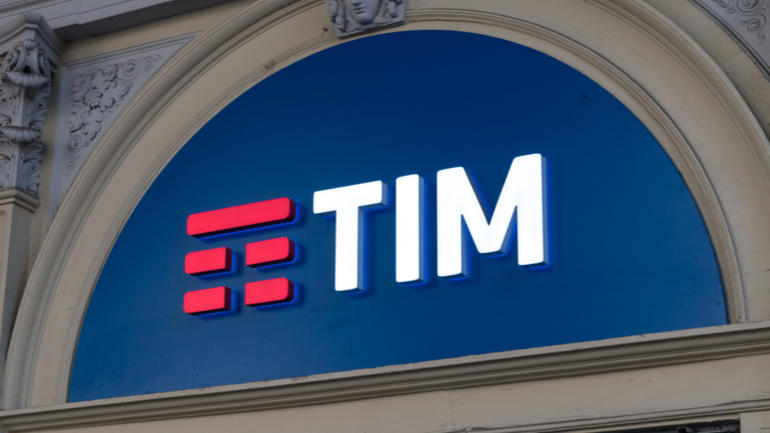French telecoms to reduce their energy use Orange has proposed numerous energy-saving measures in order to address the current energy crisis that is expected to strike Europe this winter. Orange has announced that it will reduce its immediate power use by 5 to 10% for one hour every day. Altice will also assess its mobile network settings and implement power consumption cutbacks based on system traffic. The telecom provider will also phase out less energy-efficient equipment and limit its use of air conditioning when feasible in its data centers. Its offices and businesses will also have tighter controls over air conditioning and lighting usage. Read more at: https://tinyurl.com/2p83c9km Elon Musk decides to buy Twitter after all In the upcoming days, Elon Musk and Twitter may come to a settlement to terminate their legal dispute, paving the way for the richest man in the world to finalize his $44 billion purchase…
T-Mobile sells its wireline business for $1 On Wednesday, T-Mobile US reached an agreement to sell Cogent Communications Holdings, its wireline operations, for $1, taking a $1 billion write-down charge in the process. The wireline industry, which generated $739 million in revenue last year, houses communications systems, data processing machinery and fiber optic cable. In accordance with the deal, Cogent will also acquire some business-related liabilities in addition to the fiber network, related assets and customers. Read more at: https://tinyurl.com/yckz82n2 SES and LiveU launch an integrated video solution In order to provide a complete solution for live video contribution and distribution along with premium content aggregation, SES has partnered with LiveU. Customers will now have access to the most reliable and affordable live video creation and distribution systems for broadcasting live sports, news and other events from stadiums, sporting venues and distant locations. SES broadcasts more than 700 hours of…
Starlink experienced a worldwide outage On August 30, the Starlink broadband satellite service experienced a three-hour disruption before returning to operation. Users in the United States, New Zealand, Mexico, and the Netherlands rushed to Twitter and Reddit to complain about service failures and interruptions. The satellite company made no comments on the reason for the outage and service delays. Read more at: https://tinyurl.com/yv7zk2yc Ameren will use Ericsson to power its private communications network Ericsson has stated that it will provide its Radio Access Network (RAN) and help power Ameren’s private communications network. This is the outcome of a recent infrastructure and service collaboration deal between Ericsson and Ameren that was signed for a period of ten years. As there won’t be any more external suppliers looking after the data and information on the network, Ameren will also have a higher degree of cybersecurity. Read more at: https://tinyurl.com/2s3vs4jd Sony reveals new…
One of the most important lessons society has learned from being stranded at home and unable to travel during a pandemic, is that once carbon emissions fall, the benefits materialize remarkably quickly. What have telecommunications providers learned during this time? That due to the staggering demand for digital communications at this time, the global telecom infrastructure has been forced to consume more energy than ever before, increasing the carbon footprint.
Telecom Italia (TIM) said it will begin official discussions with KKR nearly four months after the US investment firm made a non-binding offer of $11.8 billion for the business. TIM said it has invited its CEO and chairman to speak with KKR to learn more about its prospective proposal after an almost six-hour board meeting on Sunday. TIM noted in a statement that its board of directors had directed CEO PietroLabriola and chairman Salvatore Rossi to conduct formal conversations with KKR in addition to those already held by its advisers in order to maximize shareholder value in respect to other potential interested parties. The release went on to say that the goal was to get information on the financial and industrial appeal and execution of KKR’s offer, as well as to define the length and breadth of the applicable confirmatory due diligence sought by the fund prior to a…
Telecom firms in Europe are coming together to assist Ukrainians in staying connected, and they are using a variety of steps that differ from company to company and from country to country, depending on the markets in which they operate. Here are some of the steps that telecommunications firms are taking. Deutsche Telekom has started providing free calls and text messages to Ukraine. This initiative affects both individual and commercial clients making calls from landlines and mobile phones, as well as roaming in Ukraine. T-Mobile Polska and T-Mobile US, the operator’s Polish and US subsidiaries, both launched comparable deals. Verizon has waived costs for consumer and corporate users traveling to and from Ukraine. Customers with foreign coverage bolt-ons will not lose any minutes from their subscription, and voice and text roaming costs have been waived. Virgin Media O2 has lifted costs for calls to and from Ukraine,…
Sennheiser, a supplier of innovative audio technology that makes collaboration and learning simpler, has unveiled the TeamConnect Intelligent Speaker, an intelligent speaker certified for Microsoft Teams. With the integration of Microsoft Teams, the new TC ISP builds on the TeamConnect family, which is based on a foundation of innovation technology. The new unified communications solution for mid-sized Microsoft Teams Rooms, which was originally scheduled to debut at Integrated Systems Europe (ISE) 2022, was unveiled via free, live online seminars. The gadget is meant for up to 10 individuals in small to medium-sized rooms, whether participants join virtually or in person. It has a 3.5-meter-radius omnidirectional speaker and seven beamforming microphones to ensure optimal voice intelligibility. The gadget may be connected to a laptop, or a Microsoft Teams display in a conference room. The TeamConnect Intelligent Speaker provides an easy and versatile installation experience with different mounting choices, lengthy…
Oracle Communications has been chosen by Vodafone UK to lead the network policy for its standalone 5G network. Vodafone will be able to make more intelligent policy decisions and swiftly test and deploy new services using Oracle’s cloud native network policy management technology as part of its 5G core. Customers will be able to get their hands on exciting new 5G options sooner, thanks to this new agreement, which includes holographic calls, lag-free 5G game streaming and film downloads up to 4X faster than 4G networks. The solution, which is comprised of Oracle’s 5G Core Policy Control Function (PCF) and Policy and Charging Rules Function (PCRF), enables the implementation of sophisticated network policies across wireless, fixed and cable networks, as well as IoT and machine-to-machine (M2M) networks. In the case of Vodafone, the solution will provide data from which Vodafone customers may select the optimal network offer…
The telecom industry is responsible for keeping the globe linked through communications services. There are many aspects of these services that we take for granted, from private calls to business interactions. However, it is only because of the telecom sector that we are able to swiftly connect to individuals all over the world, whether by phone, internet, airwaves or cables. For years, cybercriminals have targeted telecom operators because they maintain and manage vital communications infrastructure that is used to transport and store vast quantities of private and sensitive data. Cyber-attacks on the telecom industry in particular, have risen dramatically in recent years as technology has advanced and our world has evolved to become more connected. In this article, we hope to shed light on the cyber security threats that the telecommunications sector is facing. Also, explain how providers can defend their digital environments and key infrastructure from possible cyber-attacks Why…
T‑Mobile now runs fully on renewable energy T-Mobile was the first and only US carrier to declare an ambitious plan in 2018 to source 100% of its entire power usage from renewable energy by the end of 2021, and the company has now revealed that it has met this objective. T-Mobile created a renewable energy plan that includes eight virtual power agreements, 19 retail partnerships, one Green Direct program, and unbundled Renewable Energy Certificates that assist projects around the country to help attain the 100% target. In order to meet this goal, the corporation has invested in sufficient wind and solar power to account for every unit of electricity utilized on an annual basis. Read more at: https://tinyurl.com/2p9dkvcy Cosmote receives a fine for mishandling cyberattack Cosmote, Greece’s largest mobile provider, was the target of a cyberattack by an unknown entity in September 2020. Over the course of five visits, the…













